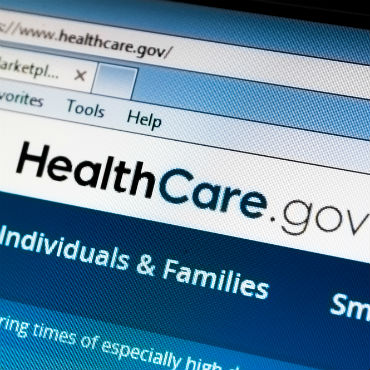House passes bill to inform users of HealthCare.gov breaches
Supporters say the bill would protect individuals' personal information while opponents say the goal is to discourage people from using the site.

Photo by txking / Shutterstock.com
A bill that would require swift notification for HealthCare.gov users whose personal information is compromised by hackers won bipartisan House passage Jan. 10, despite opposition from the White House.
The Health Exchange Security and Transparency Act, introduced by Rep. Joe Pitts (R-Pa.), chairman of the Energy and Commerce Committee's Health Subcommittee, would require notification by the Department of Health and Human Services within two business days of any breach.
Sixty-seven House Democrats backed the measure, which passed 291-122. However, it was something of a free vote because the Senate is unlikely to consider the bill.
Democratic opponents argued that the legislation is unnecessary. "There have been no successful security breaches of HealthCare.gov," said Rep. Elijah Cummings (D-Md.). "Nobody's personal information has been maliciously hacked." He suggested that the intent of the bill was to scare people away from using HealthCare.gov.
In a Jan. 9 policy statement, Obama administration officials said a notification system is already in place for breaches of personal information, and the bill would "create unrealistic and costly paperwork requirements that do not improve the safety or security of personally identifiable information" in the Health Insurance Marketplace.
Republicans countered that the fact that no breaches have occurred does not mean none ever will.
"While there has been no malicious breach, data has been improperly handled and accidentally disclosed," Pitts said. "With the messy rollout of HealthCare.gov, there is great risk that the website could be hacked. Identity theft is devastating to individuals and families. In the event of theft, we have to make sure that people are protected."
HealthCare.gov collects personal and financial information from users, some of which is fed to other government websites via a data hub to verify individuals' eligibility for coverage. The site does not ask applicants for medical information, and it does not store or transmit medical records.
Passage of the bill was hailed by Rep. Darrell Issa (R-Calif.), chairman of the House Oversight and Government Reform Committee and a leading critic of HealthCare.gov.
"The truth is that actual interviews and depositions taken of the highest-ranking people [who] helped develop this website, both public and private, show there was no end-to-end testing," Issa said during debate on the House floor. "It did not meet the spirit of any definition of a secure website."
The Obama administration also opposes a bill by Rep. Lee Terry (R-Neb.) that would require detailed weekly reporting on the use of HealthCare.gov, including account creation and enrollment. The Exchange Information Disclosure Act, which the House is expected to consider next week, would add "extraneous, costly, and unprecedented reporting requirements on states and the federal government," White House officials said in a statement. HHS currently releases some information along those lines on a monthly basis.
Terry's bill also calls for a detailed accounting of the money spent on repairs and improvements to the site's functionality and information on the government officials charged with overseeing the process. Such an accounting would include information on contractors involved in the "tech surge" led by White House official Jeffrey Zients, which featured an around-the-clock operation to implement software and hardware fixes in the wake of the failed launch of HealthCare.gov last October.
According to a Jan. 10 report in the Washington Post, Accenture will take over for one of those contractors -- CGI Federal. The latter company's main job was building the federally facilitated exchanges, which allow users to sign up for accounts, compare plans and shop for insurance. According to the Post, the pace and quality of the work contributed by CGI Federal during the effort to fix the troubled site played a key role in the decision to remove it from the project. Government information cited in the report indicates that the replacement code CGI Federal supplied failed about half the time.
Accenture's one-year sole-source contract with the Centers for Medicare and Medicaid Services is reportedly worth $90 million and is expected to take effect when CGI Federal's contract expires at the end of February.
NEXT STORY: States Join Effort to Rein in NSA Surveillance






